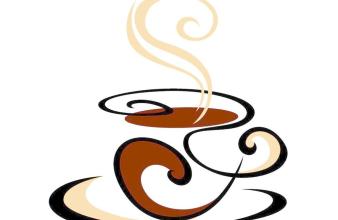Introduction to the flavor and taste characteristics of coffee from Santa Rita Manor, Colombia
Costa Rica accounts for only 0.03% of the world's land area, but with nearly 4% of the world's species, Costa Rica is one of the countries with the richest biological species in the world. 26% of the land area is a national park or nature reserve, including 11 wetlands, 2 biological reserves and 3 World Natural Heritage sites. The national forest coverage rate is 52%. It is called the Legislative Assembly, the unicameral system, the Barber Congress, the exercise of legislative power and other important functions and powers. Major government decisions need to be examined and approved by the Legislative Assembly, which is called the "first power" of the country. It is the highest legislature in the country and consists of 57 members. Members are directly elected by voters for a term of four years and are non-re-elected. The current Legislative Assembly was formed in May 2010. the new Legislative Assembly was elected on February 2, 2014. the election results are as follows: 18 seats for the ruling National Liberation Party (PLN), 12 seats for the Civic Action Party (RAC), 4 seats for the Free Movement Party (PML), 8 seats for the Christian Social Solidarity Party (PUSC), and 1 seat for all the people to join the Party (PASE). Broad Front Party (FA) 8 seats, National Reform Party (RN) 1 seat, Costa Rican Reform Party (RC) 1 seat, Christian Democratic Union (ADC) 1 seat and 2 independent parliamentarians. The current chairman is Luis Fernando Mendoza Fernando Mendoza Jimenez of the National Liberation Party, who was elected in May 2013 for an one-year term. On May 1, 2014, the Legislative Assembly completed the transition of the Partido de Liberaci ó n Nacional: the ruling party. It was founded in April 1952 and came to power nine times. At present, there are about 630000 party members, belonging to political parties of a social democratic nature. Internally, we advocate improving democracy, increasing investment in public utilities, improving the democratic system, implementing the policy of opening up trade to the outside world, increasing efforts to attract foreign investment, carrying out pluralistic diplomacy, and supporting regional integration. In February 2010, the party's candidate Chinchilla was elected president, achieving his ninth term in office. Party Chairman Bernal Jimenez (Bernal Jim é nez), General Secretary Antonio Calderon Castro (Antonio Calder ó n Castro)
Coffee is an important source of economy in Colombia. It was introduced in 1808 and has been cultivated for 200 years. Costa Rica has 1x3 population input.
Newly developed villa sarchi species
Newly developed villa sarchi species
In the coffee-related industry, Colombians say that coffee has changed the country and can enjoy a rich environment, and coffee has indeed made an outstanding contribution. Although Costa Rica ranks third from the bottom in terms of land area in Central America, its economic environment is better than that of half of the countries, and because of its affluent people, social stability and the ability to care about environmental issues, there are more than 30 national parks in Costa Rica that grow Arabica coffee trees. Through improvement, the quality of coffee beans is better and more stable. In order to facilitate picking, coffee trees are kept at a height of about 2 meters by continuous pruning; the coffee that people eat is the taste of the seeds in the fruit that are brewed in water. After picking raw coffee beans, the seeds (that is, coffee beans) can be roasted by peeling, pulp, seed film and sun exposure. Part of the process can be replaced by machines, and the speed of coffee production increases a lot. However, there is no machine to do coffee picking. We must use artificial other kinds of Brazilian coffee, such as Rio, Parana, etc., which do not require too much care and can be produced in large quantities, although the taste is relatively rough. However, it can be regarded as a kind of high-quality and inexpensive coffee, which has its own standard because it is distributed all over the country and its solid quality varies (NO.2~NO.8 according to the number of sundries, NO.13~NO.19 according to the size of beans, and six grades according to taste). Almost all Arabica species are of good quality and stable in price. The most famous one is "Costa Rica". Since ancient times, it has been a necessity of blended coffee and is familiar with Costa Rica's Tarasu (T).
Place of Origin
Place of Origin
Arrazu) is one of the major coffee producing areas in the world, with a light and pure flavor and pleasant aroma. Costa Rica, with its fertile volcanic soil and good drainage, is the first country in Central America to grow coffee and bananas for commercial value. Coffee and bananas are the country's main exports

Important Notice :
前街咖啡 FrontStreet Coffee has moved to new addredd:
FrontStreet Coffee Address: 315,Donghua East Road,GuangZhou
Tel:020 38364473
- Prev

Introduction to Fine Coffee beans in Manor Ireta, Panama
Panama is located in the isthmus of Panama in Central America, bordered by Colombia to the east, the Pacific Ocean to the south, the map of Panama to Costa Rica to the west and the Caribbean Sea to the north. The territory is S-shaped to connect North and South America, and the Panama Canal connects the Atlantic and Pacific oceans from north to south. It is known as the bridge of the world. [5] Panama has a land area of 75517 square kilometers.
- Next

Introduction to the unique and strong flavor and taste of coffee from Chateau Saint Roman, Costa Rica
High-quality Costa Rican coffee is called extra hard beans, and this kind of coffee can grow at an altitude of more than 1500 meters. Altitude has always been a problem for coffee growers. The higher the altitude, the better the coffee beans, not only because the higher altitude can increase the acidity of the coffee beans and thus increase the flavor, but also because the night temperature at the higher altitude is lower, which can make the trees grow slowly.
Related
- Does Rose Summer choose Blue, Green or Red? Detailed explanation of Rose Summer Coffee plots and Classification in Panamanian Jade Manor
- What is the difference between the origin, producing area, processing plant, cooperative and manor of coffee beans?
- How fine does the espresso powder fit? how to grind the espresso?
- Sca coffee roasting degree color card coffee roasting degree 8 roasting color values what do you mean?
- The practice of lattes: how to make lattes at home
- Introduction to Indonesian Fine Coffee beans-- Java Coffee producing area of Indonesian Arabica Coffee
- How much will the flavor of light and medium roasted rose summer be expressed? What baking level is rose summer suitable for?
- Introduction to the characteristics of washing, sun-drying or wet-planing coffee commonly used in Mantenin, Indonesia
- Price characteristics of Arabica Coffee Bean Starbucks introduction to Manning Coffee Bean Taste producing area Variety Manor
- What is the authentic Yega flavor? What are the flavor characteristics of the really excellent Yejasuffi coffee beans?

